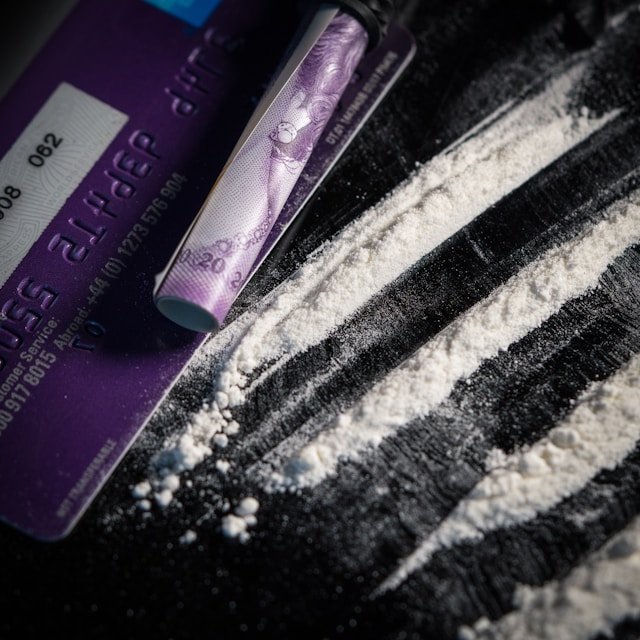Kurtis Hoyte led a massive encrypted cocaine operation across London – Now he’s behind bars
South London’s criminal underworld suffered a major blow as Kurtis Hoyte, a Beckenham man who orchestrated a vast £17 million cocaine empire, was sentenced to 18 years in prison. Hoyte, 37, masterminded a sophisticated drug network that relied on encrypted communications to coordinate large-scale cocaine shipments across the capital.
Hoyte’s downfall was sealed by Operation Venetic, a sweeping national crackdown on criminals using EncroChat – an encrypted messaging platform once favoured by organised crime syndicates. Detectives uncovered evidence that Hoyte was a central figure in a high-level trafficking operation, peddling vast quantities of cocaine while keeping his network under digital wraps.
But the cloak of encryption offered no escape. When officers eventually caught up with him, they found Hoyte with a significant amount of cocaine in his possession. Further forensic work on his EncroChat messages unveiled the scale and sophistication of his operation.
During sentencing at Kingston Crown Court, the judge described Hoyte’s operation as a “calculated and sustained assault on communities across London,” with profits fuelling violence, addiction, and the corrosion of public safety.
Also sentenced was Kieran Graham, a 36-year-old accomplice from Kent, who worked closely with Hoyte in the daily management of the criminal network. Graham received eight years in prison for his role in the conspiracy.
Embed from Getty ImagesAccording to the National Crime Agency (NCA), Hoyte’s network was responsible for flooding South London with multi-kilo consignments of high-purity cocaine, causing incalculable harm. Authorities praised the result as a significant milestone in efforts to dismantle major drug networks.
Martin Grace, operations manager at the NCA, stated:
“Hoyte operated like a drug cartel CEO — remote, strategic, and ruthless. But no matter how sophisticated the system, no one is beyond the reach of justice.”
Operation Venetic, launched in 2020, remains one of the UK’s largest intelligence-led crackdowns on organised crime. It has resulted in hundreds of arrests and convictions, as investigators decrypted millions of EncroChat messages used to coordinate arms deals, drug smuggling, and money laundering.
Hoyte, who lived in Beckenham but operated across multiple boroughs, used aliases and burner phones to manage the logistics of his enterprise. Investigators say the EncroChat evidence clearly showed him instructing couriers, negotiating wholesale prices, and bragging about profits.
During the raid that led to his arrest, officers uncovered cocaine with a potential street value of hundreds of thousands of pounds, along with packaging materials, burner phones, and encrypted devices.
In court, prosecutors said Hoyte’s trade was so well-oiled it resembled a full-scale corporate operation, with logistics, supply chains, and price points carefully managed to maximise profit. They added that Hoyte had no legitimate income and led a lavish lifestyle funded entirely by crime.
For local communities, the sentencing brought a sense of closure. Drug crime in Hoyte’s territories had been rising steadily, with turf disputes and addiction rates worsening over the last three years.
Outside court, community advocate Nadine Russell said:
“This conviction isn’t just about taking one man off the streets. It’s about reclaiming our neighbourhoods from the grip of organised crime.”
The case is one of several high-profile convictions made possible by Operation Venetic. Law enforcement officials warn that while Hoyte’s network has been dismantled, other figures will try to fill the void. However, the message remains clear: encrypted tech may slow investigators down — but it won’t stop them.
Hoyte will now serve the majority of his sentence behind bars. For South London, it’s a moment of justice, and perhaps, a chance to heal.
